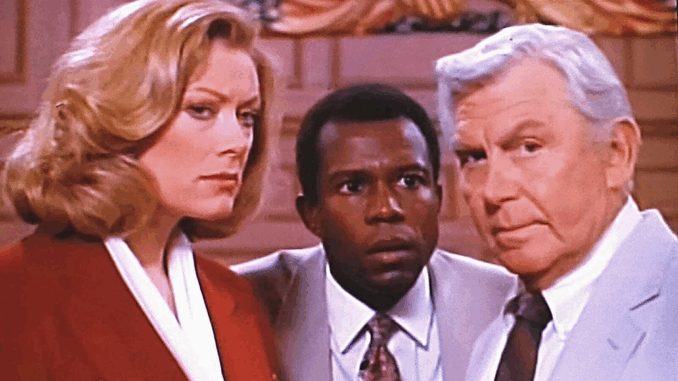
A Timeless Character in a Changing Television Landscape
Decades after its original run, Matlock remains one of the most recognizable courtroom dramas in American television history. Premiering on CBS in 1986 and starring Andy Griffith as the shrewd but folksy defense attorney Ben Matlock, the series combined legal procedural storytelling with the charm and wit of its lead character. It didn’t just entertain viewers—it created a template for how courtroom dramas could feel both intelligent and comforting.
While the television world has evolved dramatically since the 1980s, there’s something about Matlock’s gray suit, Southern drawl, and relentless pursuit of justice that still resonates.
More Than a Lawyer—A Character Study in Principle
Ben Matlock wasn’t just a clever defense attorney; he was a deeply principled man who fought for the innocent regardless of the odds. Often underestimated because of his folksy demeanor and love for hot dogs, Matlock had a mind like a steel trap and a courtroom style that relied more on psychology and observation than legal trickery.
Unlike other television lawyers who were sleek, modern, or ethically ambiguous, Matlock stood for something clear: truth and fairness. He often uncovered the real culprit in a dramatic courtroom twist, not unlike Sherlock Holmes with a Southern accent.
The Griffith Effect
Much of Matlock’s success can be credited to Andy Griffith himself. Already beloved for The Andy Griffith Show, Griffith brought warmth, humor, and depth to the role of Ben Matlock. He wasn’t playing a character so much as channeling the best parts of himself—wise, funny, patient, and tenacious.
Griffith had a way of making even the most complex legal drama feel approachable. His long pauses, raised eyebrows, and simple questions often led to moments of dramatic revelation. It’s no wonder that fans still quote his cross-examinations or hum the show’s memorable theme music.
A Comfort Show with Substance

In many ways, Matlock functioned as a comfort show. The episodes followed a familiar rhythm: a murder occurs, a suspect is arrested, Matlock takes the case, and through a mix of interviews, sleuthing, and courtroom theatrics, he exposes the real killer. But within that predictability, there was plenty of room for genuine suspense and insight into human behavior.
The show also touched on social issues, including racism, corruption, and injustice, though always through the lens of individual responsibility rather than overt political messaging. Matlock’s ability to listen, empathize, and understand people gave the series an emotional backbone.
A Cast That Supported the Vision
Ben Matlock didn’t work alone. Across the show’s run, he was supported by a cast of investigators and attorneys, including characters like Michelle Thomas (played by Nancy Stafford), Tyler Hudson (Kene Holliday), and later Cliff Lewis (Daniel Roebuck). Each brought a different energy to the show, providing balance to Matlock’s wisdom.
Their chemistry with Griffith kept the show fresh even as the formulas stayed the same. These characters weren’t just sidekicks—they were key players who brought new perspectives to each case.
A Lasting Footprint
Though Matlock concluded in 1995, its influence can still be seen in countless procedural dramas today. Shows like Law & Order, The Practice, and Boston Legal owe a debt to Matlock’s balance of case-of-the-week structure with character-driven storytelling.
What makes Matlock endure isn’t just nostalgia. It’s that rare combination of smart writing, a charismatic lead, and a moral center. At a time when many TV lawyers straddle the line between hero and anti-hero, Matlock reminds us of the power of standing firmly on the side of justice.